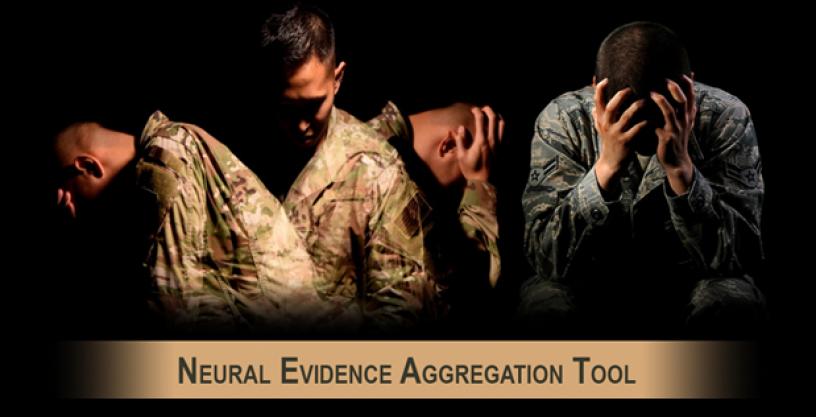
Work underway to more accurately identify military members at risk of suicide
Jul 11, 2023
DARPA has selected two industry-led and two university-led teams for the Neural Evidence Aggregation Tool (NEAT) program. NEAT seeks to provide clinicians with new information to save warfighters’ lives. Rather than rely solely on subjective self-report questionnaires for screening, NEAT will attempt to provide mental health professionals with objective biomarkers of suicidality. These biomarkers consist of extremely fast automatic brain and body responses reflecting pre-attentional processing rather than consciously filtered subjective responses to questions. The ultimate program goal is to reverse the tragic trend of suicide among military members and veterans by giving clinicians a more reliable screening tool for early detection of suicidality.
DARPA has selected the following lead institutions and research partners as NEAT performers:
- Charles River Analytics partnered with Tufts University, the Georgia Institute of Technology, and Emory University
- Draper partnered with Harvard Medical School affiliates the McLean and Massachusetts General Hospitals, the Georgia Institute of Technology, Northeastern University, and the University of Pennsylvania
- University of Minnesota partnered with Deliberate.ai, Intheon, University of Washington, and Worcester Polytechnic Institute
- University of Southern California (USC) partnered with University of California, Los Angeles (UCLA)
In addition to these performers, DARPA selected Johns Hopkins University Applied Physics Laboratory as the independent validation and verification (IV&V) team for technical input and analysis. DARPA also selected RAND to inform the research by convening a group of stakeholders to provide an independent analysis of the ethical, legal, and societal implications (ELSI) for DARPA and the performers.
“Typically, physicians use a patient’s initial subjective descriptions of symptoms to then choose from a vast array of imaging, laboratory tests, and other objective measures to assist in making a diagnosis,” said Dr. Greg Witkop, a former Army surgeon and NEAT program manager. “Mental health professionals, however, must do the best they can for screening and assessment with limited tools beyond subjective self-report. Several objective biomarkers can differentiate the life-threatening pain of a heart attack from other causes of chest pain; however, there are no established biomarkers to differentiate the life-threatening pain of suicidality from other causes of mental suffering. I am incredibly grateful to all of the NEAT performers for attempting to save lives by identifying biomarkers for early detection of suicidality.”
An initial detailed announcement of the NEAT program was released last year here:
www.darpa.mil/news-events/2022-03-02.
Media with inquiries should contact DARPA Public Affairs at outreach@darpa.mil
Associated images posted on www.darpa.mil and video posted at www.youtube.com/darpatv may be reused according to the terms of the DARPA Usage Policy.
